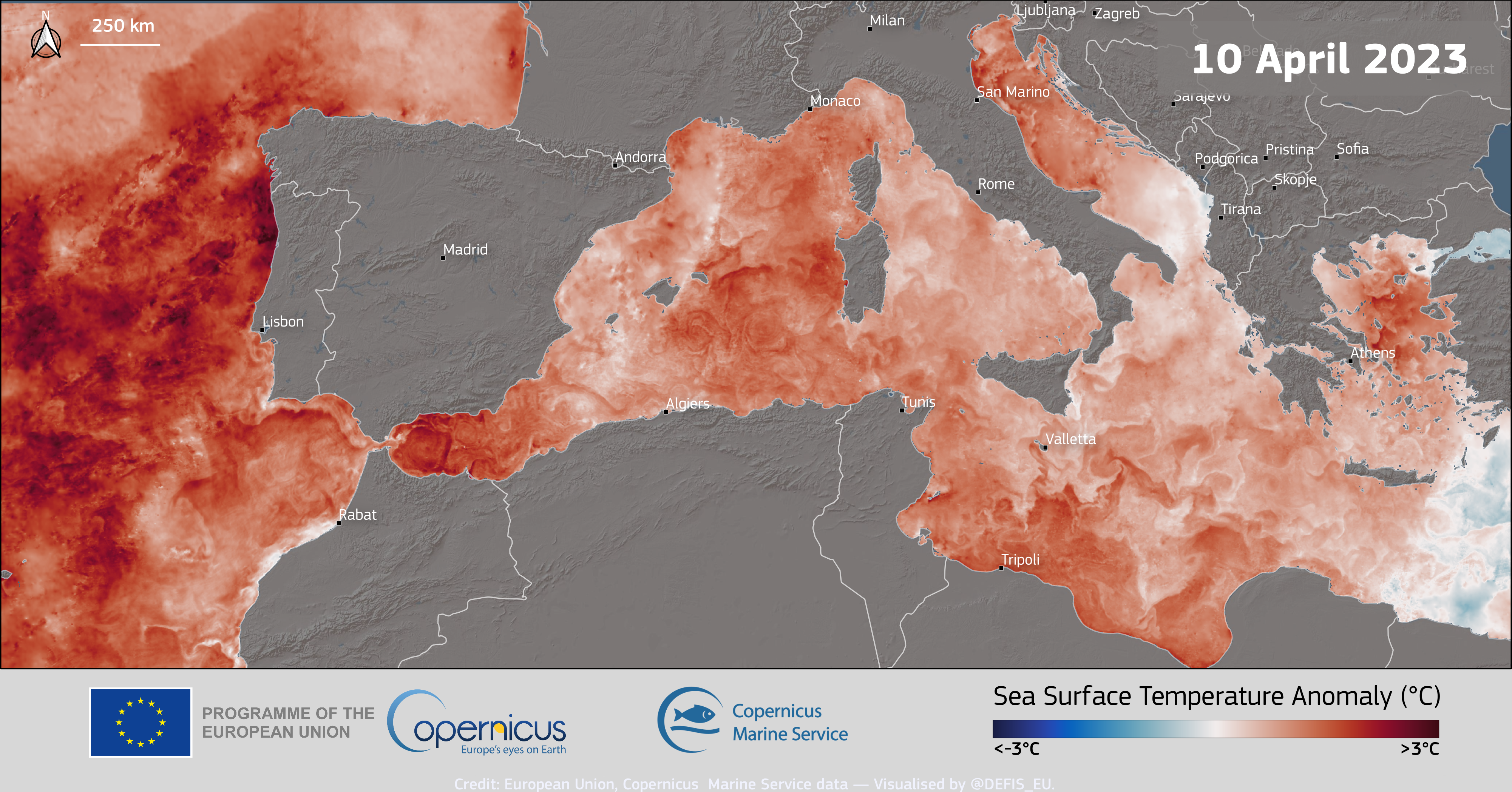Satellite image reveals how global ocean ocean is hotter than ever
The ocean is absorbing approximately 90 per cent of the heat trapped by greenhouse gases

Satellite imagery released on Monday has provided visual evidence of new findings that the global ocean is hotter than ever.
The average global ocean temperature is now 21.1 degrees Celsius - surpassing the previous record of 21C set in 2016, according to preliminary data from US government agency, the National Oceanic and Atmospheric Administration (NOAA), released last week.
This week, a satellite image from the CopernicusEuropean Union space programme showed Sea Surface Temperature (SST) changes in the Mediterranean and off the Atlantic coasts of the Iberian Peninsula and North Africa.
The SST is 3C higher than the expected temperature.
The alarming rise in ocean temperature has serious implications with climate experts warning of more extreme weather events, dying coral reefs, and loss of marine biodiversity globally.
A hotter ocean means more rapid melting of the polar ice caps which also results in sea level rise.
The ocean is heating up due to the climate crisis driven by the excessive amounts of greenhouse gas emissions entering the atmosphere, largely from burning fossil fuels.
The ocean is absorbing approximately 90 per cent of the heat trapped by greenhouse gases, according to scientific studies.
For the past several years, the world has experienced a La Niña weather phenomenon which is characterised by cooler sea temperatures.
But forecasters expect that an opposing El Niño may form this summer during which Pacific waters are unusually warm, exacerbating the ocean warming caused by the climate crisis.
The second-hottest globally averaged ocean temperatures coincided with the last El Niño that ran from 2014 to 2016, according to the Noaa data.
The Intergovernmental Panel on Climate Change (IPCC), the world’ leading climate science panel, has warned if the global temperature rises to 2C, the ocean will be two to four times warmer by 2100.
Join our commenting forum
Join thought-provoking conversations, follow other Independent readers and see their replies
Comments


Bookmark popover
Removed from bookmarks